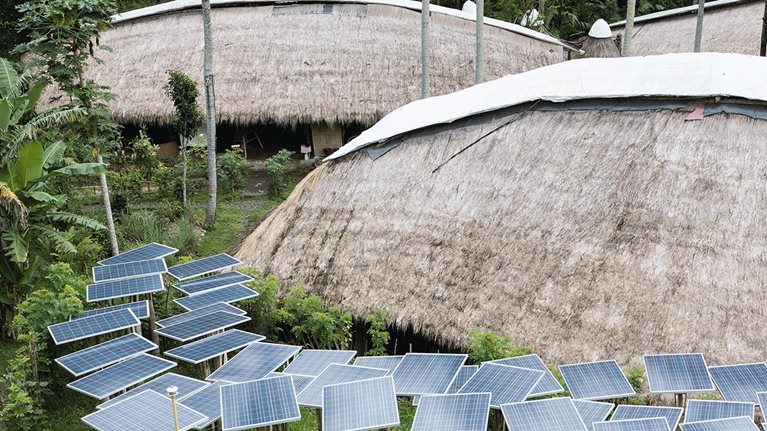As a result of its high exposure and vulnerability to climate hazards, a third of the people considered most at risk from climate change in the world live in Africa.
More than 900 million Africans could find themselves exposed to one or more climate hazards in a warming world over the next 30 years.1 At the same time, shifting global consumption patterns as the world moves towards a low-carbon future—including a global fall in demand for oil—could further undermine African economies.
Preparing for these risks is an increasing focus for many African governments and many are realizing that there are opportunities to be seized in a net-zero world. If the continent can use its large renewable energy-generation capacity and rich natural capital endowments responsibly and strategically, it could catalyze economic growth and make a substantial contribution to the global net-zero transition. There is potential, too, for African countries to tap into the global decarbonization agenda to access international support to pursue low-carbon development pathways and build a safer, healthier, and more prosperous future for their citizens.
Africa’s development pathway is also important for the world. While African per capita emissions are, on average, still less than half of those of Organization for Economic Co-operation and Development (OECD) countries’, the continent nonetheless accounts for roughly 10 percent of global annual greenhouse gas emissions, when land-use emissions and all greenhouse gases are taken into account. By comparison, global aviation accounts for less than 2 percent.2 With rapid population and economic growth expected over the next 30 years, Africa’s share of emissions is likely to increase if no action is taken.
In this article, we provide an overview of some of the climate change risks that Africa is facing and highlight 10 green opportunities that could deliver growth, boost resilience, and abate emissions by, for example, delivering energy access, building more resilient and productive economic capacity, improving health and quality of life in core areas such as sanitation and transportation, and opening up major new export sectors.
While this is not an exhaustive outlook, the intention is to provide a starting point for an expanded dialogue on the continent’s options, with the hope of inspiring action towards building a stronger Africa in a net-zero world.


